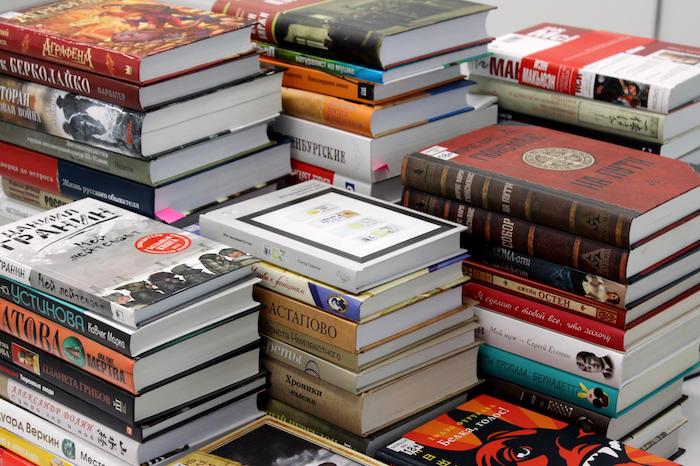Are Self-Publishing Companies "Cheating"?
Are self-published authors not "paying their dues?" Are self-publishing services encouraging cheating the system? According to Brent Sampson, they are merely taking advantage of the evolution of the entertainment and business worlds.

But are self-publishing writers really "cheating," or are they simply taking advantage of widespread changes taking place throughout the entertainment and business worlds?
Why Should the Book Publishing Industry Be Any Different Than The Music and Entertainment Worlds?
The same Do-it-Yourself (DIY) fever has swept through the music industry. Musicians (talented and otherwise) are no longer waiting for acceptance from the "establishment." Instead, they are distributing their music through iTunes. They are finding their audiences through Myspace. And, they're broadcasting their music videos via YouTube.
It is safe to say the music industry has irrevocably changed. Musicians no longer give 95% of their royalties to the "industry" and customers no longer buy CDs from brick-and-mortar music stores.
Are these musicians cheating?
No.
They are still paying their dues, but now the invoice comes after their music has already become available. They still must market aggressively to obtain listeners, but at least they have something to market. The audience determines which of those musicians succeed and which of them fail.
This is no different from the self-publishing book industry.
How the D-I-Y Mentality Removes Unnecessary Hurdles
Can you imagine the uproar that would ensue if all that were required to start playing for the New York Knicks was writing a check for $1000 to some Internet company? Can you imagine the fervor if all that were required to obtain a recording contract was standing in line at some reality show try-out?
Wait a minute!
That's already happening. Reality television has altered the search for "talent" and now, in rare instances, getting "discovered" is no harder than filling out an application. Nowadays, instead of submitting audition tapes to countless producers, lyricists stand in line for American Idol and face the possibility of public humiliation at the hands of Simon and company.
Is this "cheating," per se, or has the do-it-yourself mentality simply removed unnecessary hurdles that prevented talent from being discovered faster? You see, talent is the one common denominator and talent cannot be purchased. Cast members of Survivor have their fifteen minutes of fame and then disappear back into the abyss. The try-outs for American Idol feature thousands upon thousands of "hopefuls" standing in lines around city blocks and yet the main competition is comprised of just a handful. Most had their opportunity to shine, and their audience rejected them. But at least they received a shot.
How a Self-Publishing Company is Like American Idol for Writers
As a recent New York Times article states, self-publishing companies are thriving, and that is because self-publishing companies give writers their shot. Their fifteen minutes of fame.
Self-publishing companies are like American Idol for writers. They make it easy to publish a book. If "publishing a book" is your dream, you're going to be happy with the result. And if your dream is to be successful, famous, rich, or a combination of the three, you're going to receive your chance. But just like everyone else who is successful, famous, or rich, you are going to need to bring something special to the table.
Most reasonable people recognize this. Those who don't may become disillusioned, but listen — if it were easy to become a bestselling author, a multi-platinum recording artist, a player for the New York Knicks, or a highly-sought-after runway model, then everyone would do it.
How Self-Publishing Can Help You Make More Money Fast
See, self-publishing companies shine a light on writers. It is the writer's job to shine back. Some authors do, like Gang Chen, who earned more than $39,000.00 in royalties from Outskirts Press in the 4th quarter of 2008, and nearly that much again in one single month in January 2009.
Did he sell a million copies of his book? No. Is he making a lot of money as a self-published author? Yes. By any reasonable benchmark, Gang Chen is a successful self-published author who has given specific permission to have his successes shared.
Can you achieve this kind of success when you self-publish your book?
Yes! But, you must understand that success is never guaranteed. All writers are different just like all contestants on American Idol are different. If you are going to self-publish your book, you're better off publishing with a company where your chances for success increase. Above all, you have to believe in yourself and you have to work hard. Success rarely comes easily for anyone, but now, thanks to self-publishing companies like Outskirts Press, everyone has an equal chance. They will shine the light on you. What you do with that light is up to you.
Read These Next
Self-Publishing Means Self-Marketing
There are many advantages to self-publishing, but nobody should make the mistake of thinking that it’s easy. Sometimes the writing and the publishing are the easy parts. When that is done the challenge is to put your work into the shop window, where others can see it. With over a million titles on the market, you are up against some stiff competition.
The Dangerous Side of Children’s Books
As an author, if you’re inspired to delve into the slightly dangerous, dark or subversive corners of childhood with your books, feel free to do so. Don’t limit yourself to all that’s bright, safe and up to code.
Leveraging Writers Conferences to Build a Writing Career
With a good mindset and a bit of research and preparation, aspiring authors can use writers’ conferences to advance their careers. Here are some tips for making the most of these events.






